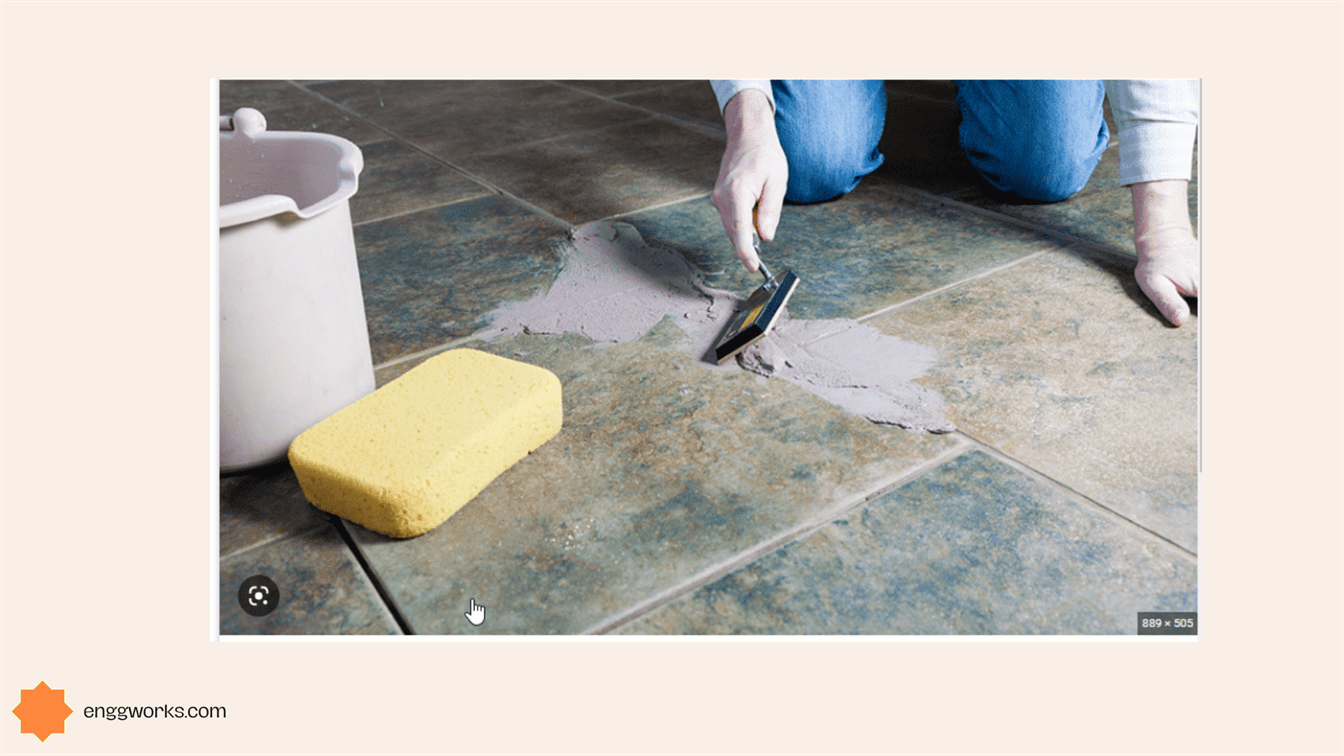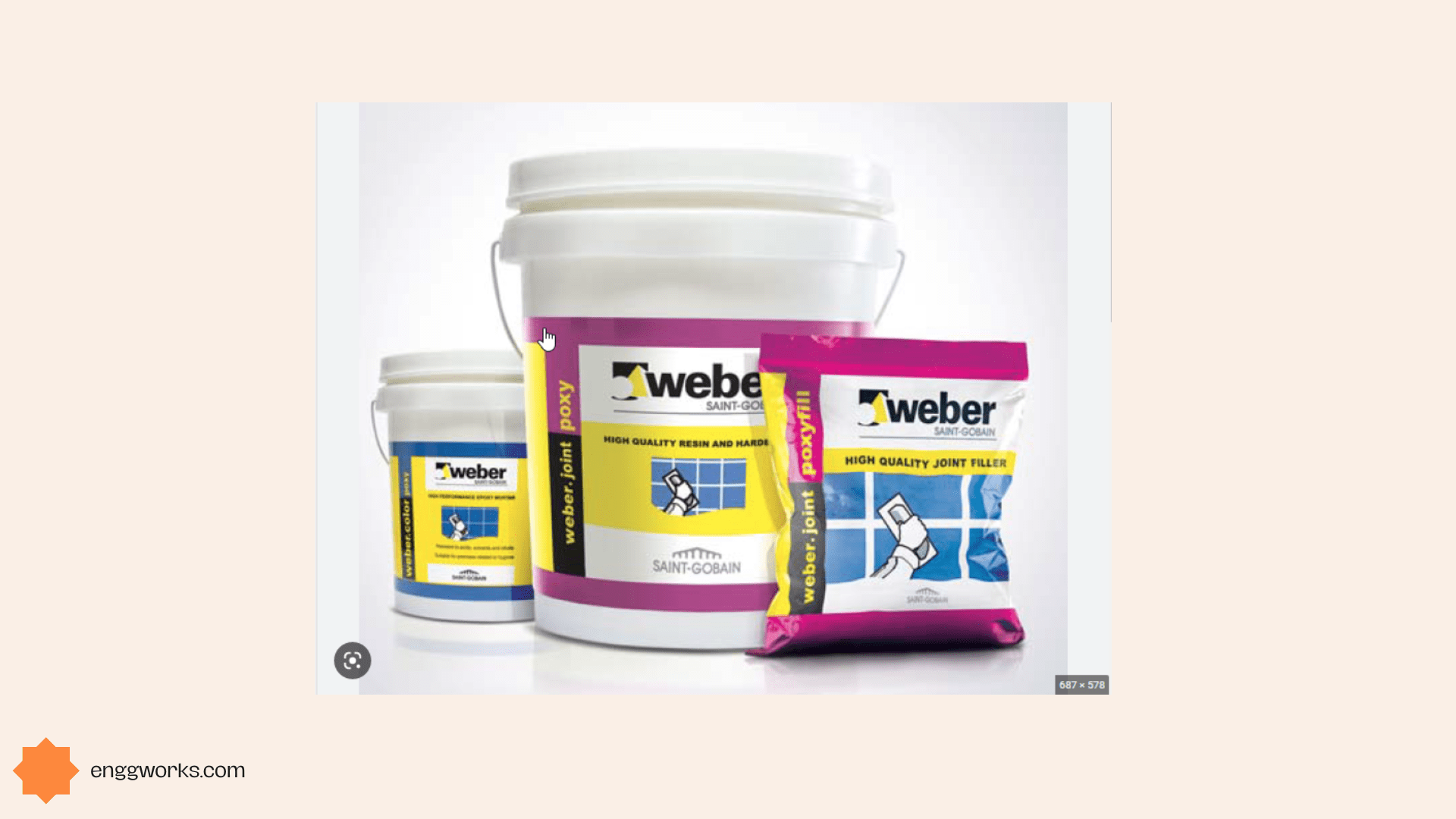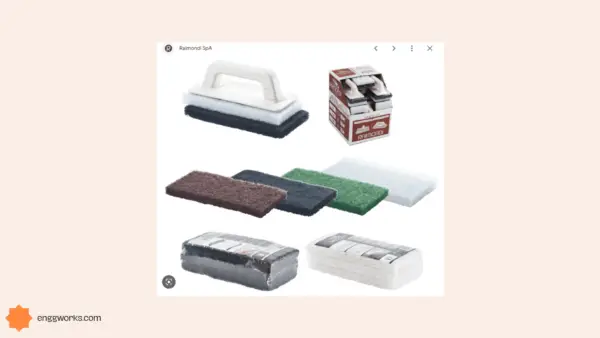Epoxy grouting is a method of repairing cracks and strengthening concrete structures by injecting a high-strength adhesive resin into the damaged areas.
It has several advantages over conventional cement grouting, such as higher bond strength, better resistance to chemical and environmental degradation, and lower shrinkage.
Epoxy grouting can be used for various applications, such as restoring structural integrity, sealing leaks, improving durability, and enhancing aesthetics.
It is a type of grouting material that is used to fill gaps and spaces between tiles or other types of building materials.it is also sometimes called as tile grout. It is made from a two-part epoxy resin and a hardener that are mixed together just before use.
Epoxy grout is known for its durability, resistance to stains and chemicals, and ability to bond strongly to a variety of surfaces.

4 Step Process of Epoxy Grouting
Preparing the surface
The area that will be grouted needs to be clear of any loose or deteriorating materials and must be clean and dry. Use an appropriate solvent or detergent to remove any oil, grease, or grime.
Any already present fissures must be enlarged and deeper in order to make a V-shaped groove for the epoxy resin.
Mixing the epoxy resin
The epoxy resin consists of two components: a base resin and a hardener.
In accordance with the recommendations of the manufacturer, the ratio of these components must be precisely measured. In a clean container, combine the ingredients thoroughly until they have a uniform colour and consistency.
It should be utilised within the pot life of the combined epoxy resin, which is dependent on the surrounding temperature and humidity.
Injecting the epoxy resin
The epoxy resin should be injected into the cracks or voids using a suitable applicator, such as a caulking gun, a syringe, or a pressure pump.
The injection should start from the lowest point and proceed upwards, filling the entire crack or void with epoxy resin. Any excess epoxy resin should be wiped off with a cloth or a spatula.
Curing the epoxy resin
The curing time of the epoxy resin depends on the type and amount of hardener used, as well as the ambient temperature and humidity.
The cured epoxy resin should have a hard and glossy surface that adheres firmly to the concrete substrate.
The cured epoxy resin should not be exposed to direct sunlight, moisture, or extreme temperatures until it has fully cured.
Epoxy grouting Vs Cement grouting
Cement grouting and epoxy grouting are two common methods of filling the gaps between tiles or other surfaces.
Both methods have their advantages and disadvantages depending on the application and the desired result.
| Description | Epoxy grouting | Cement grouting |
| Cost | More expensive | cheaper |
| Installation | Harder to install | Easier to install |
| Areas | Suitable for high traffic areas | Low traffic areas |
| Maintenance | No regular maintenance | Requires regular maintenance |
| Durability | More durable, Resistant to cracking and staining | Less durable, Cracks develop over time |
| Working places | Suitable for High moisture areas like swimming pools, kitchens etc | Minimal moisture areas like walls or floors of bedrooms. |
| Material | epoxy resin and hardener | cement, sand, and water. |
| Setting time | Sets quickly | Comparatively Slow setting time |
| Water absorption | Less porous , absorbs less water | More porous, susceptible to water damage. |
Epoxy Grouting Pros and Cons
Epoxy grout is more expensive, but has several advantages when compared to a traditional cement grout .
It is a professional and effective way of installing and repairing tiles or other materials including porcelain, glass, and natural stone.
It can provide a long-lasting and aesthetically pleasing result for any project.
Advantages
Epoxy grouting is resistant to stains, chemicals, and abrasion, making it suitable for high-traffic and industrial areas.
It does not shrink or crack over time, ensuring a strong and stable bond between the tiles or materials.
easy to clean and maintain, as it does not absorb dirt or moisture.
enhance the appearance and durability of the tiles or materials, as it comes in various colors and finishes.
Disadvantages
Epoxy grout is more difficult to work with than cementitious grout, and it requires careful mixing and application to ensure a proper cure.
It is more expensive than cementitious grout, which may make it less practical for some projects.
It is not recommended for outdoor use, as it can discolour or break down when exposed to UV rays from the sun.
It contains chemicals that, if not handled carefully, can be dangerous to your health. The resin and hardener’s vapours have the potential to be poisonous, and skin contact can irritate the skin and trigger allergic reactions.
Epoxy grout can be more brittle than cementitious grout, which means that it may crack under heavy loads or thermal stresses.
Overall, while epoxy grouting has many benefits, it may not be suitable for all applications. It is important to weigh the pros and cons of epoxy grout carefully before deciding whether to use it for a project.
Epoxy grouting prices
Compared to other grouting materials, epoxy grouting prices are very high, which is why its usage is limited for certain projects.

Epoxy grouting prices in India vary depending on the brand, quality, quantity and location of the service provider.
According to some online sources, epoxy grouting prices in India range from Rs 350/kg to Rs 4250/kg , while epoxy grouting services charge from Rs 20/square feet to Rs 400/bottle.
Some of the popular brands of epoxy grout available in India are Durabuild, Roff, Floorex, Fastobond and Cera Poxy .
These brands offer different shades and finishes of epoxy grout to suit different preferences and requirements of customers.






